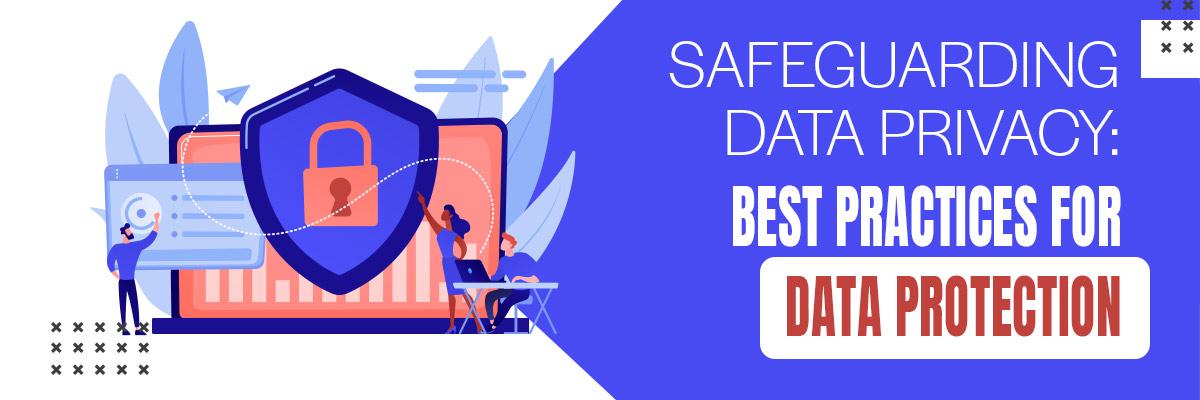The Importance of Data Protection
Understanding the Importance of Data: In today's digital age, data is one of the most valuable assets for individuals and organisations alike. From personal information to sensitive data, ensuring the protection of this information is crucial to maintaining trust and security.
Data Protection Laws and Regulations: Various data protection laws and regulations have been enacted to safeguard personal data and privacy. These laws outline the rights of individuals regarding their data and set guidelines for organisations on how to handle and protect this information.
Security Measures for Personal Data: Implementing robust security measures is essential to protect personal data from unauthorised access. Encryption, secure networks, access controls and regular audits are some of the key measures to safeguard sensitive information.
Best Practices for Data Privacy
Implementing Privacy Policies: Organisations should have clear and comprehensive privacy policies that outline how data is collected, processed and stored. Transparency in data practices helps build trust with data subjects and ensures compliance with privacy regulations.
Minimising Data Collection: Data minimisation is a fundamental principle of data breaches and privacy that involves collecting only the necessary information for a specific purpose. By limiting data collection, organisations can reduce the risks associated with storing excess data.
Regularly Updating Privacy Practices: The data privacy landscape constantly evolves, and organisations must stay current with best practices and regulatory requirements. Regular reviews of privacy practices and updating policies help maintain a secure data environment.
Ensuring Data Security
Training Employees on Data Protection: Employee training is vital to promote a culture of data protection within an organisation. By educating employees on best practices and security protocols and responding to data incidents, organisations can enhance data security.
Effective Data Transfer Procedures: Secure data transfers are crucial to prevent unauthorised access and data breaches. Encrypted communication channels, secure file-sharing methods and strict access controls are essential for ensuring data is protected during transfer.
Robust Data Protection Practices: Implementing comprehensive data protection practices involves a combination of technical, organisational and legal measures. By adopting a holistic approach to data security, organisations can better protect personal information and mitigate risks.
Preventing Data Breaches
The Risks Associated with Data Breaches: Data breaches can have severe consequences, including financial loss, reputational damage and legal implications. Understanding the risks associated with data breaches is crucial for organisations to implement preventive measures.
Maintaining Data Integrity: Data integrity ensures that data remains accurate, consistent and secure throughout its lifecycle. By implementing data validation processes, backup solutions and access controls, organisations can maintain the integrity of their data.
Protecting Personal Information: Personal information must be safeguarded against unauthorised access and misuse. By implementing stringent security measures, organisations can protect personal data and uphold the trust of data subjects.
Cultivating a Privacy Culture
Fostering a Culture of Data Protection: Building a privacy-aware culture within an organisation involves creating awareness, setting clear policies and fostering accountability for data protection. Employees at all levels should prioritise data security and privacy in their daily operations.
Ensuring Compliance with Privacy Regulations: Compliance with privacy regulations, such as the General Data Protection Regulation (GDPR), is essential for organisations to avoid penalties and maintain trust with data subjects. Regular audits and assessments help ensure adherence to data protection principles.
The General Data Protection Regulation (GDPR): The GDPR sets guidelines for the processing of personal data and the rights of individuals over their information. Adhering to GDPR requirements strengthens data protection practices and enhances transparency in data processing.
The ICT Shak is a dynamic web development company based in Brisbane, Australia, dedicated to providing comprehensive support for small businesses in enhancing their online presence. Specializing in web development and digital marketing, we offer tailored solutions to help businesses thrive in the competitive online landscape. Our team of skilled professionals is committed to delivering high-quality websites and effective digital marketing strategies that drive results. With a focus on customer satisfaction and innovation, The ICT Shak is your partner in achieving online success. Click here to arrange a quote or call 07 3103 3133.
We specialise in helping businesses with their local search engine optimisation
Find out how your business is ranking in your Local Area
![]() Local Search Rankings
Local Search Rankings![]() Local Listings
Local Listings![]() Reviews
Reviews![]() On-site Search Engine Optimisation
On-site Search Engine Optimisation![]() Social Media
Social Media




